
"The more we selflessly serve others, the more we will love: The more we love, the closer we come to the Lord."


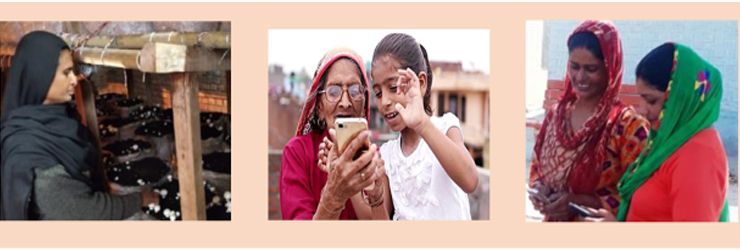
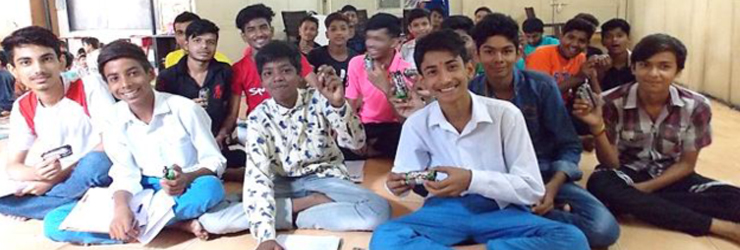


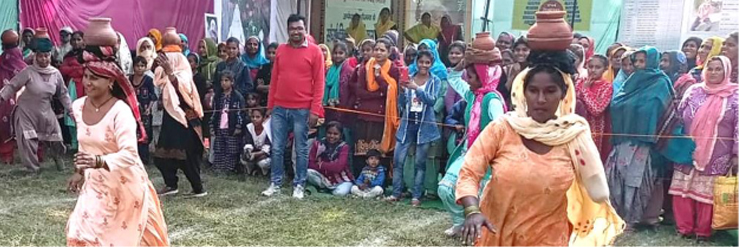
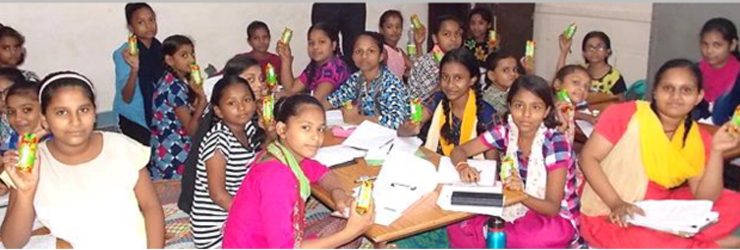
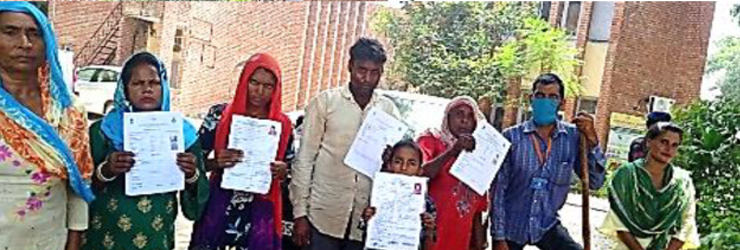
Himachal Development, India
Arpana’s Development Services in Himachal
WOMEN & FARMERS SELF-HELP GROUPS (SHGS)
Arpana has been empowering poor, underserved rural women and marginalized farmers in Chamba District for over 2 decades through Self Help Groups (SHGs). Today, 81 women’s SHGs and 23 men’s SHGs work effectively across 55 villages in Arpana’s target area, with a membership of 840 women and 198 men. They are now active agents of change, development, and well-being in their communities.
These SHG members have taken 818 individual loans for generating income through cattle for milk, mules for cartage, agricultural implements for renting out, washing machine for hotel laundry, etc.
Activities of Women’s Self-Help Group
Sanitation Drive at village Nagli |
 |
Pushpa Devi Secures her Family
Shrimati Pushpa Devi is a resident of village Sounthali 2. She became a member of Gauri Women’s Self-help Group 8 years ago.Her family was burdened by extreme poverty and Pushpa first took a loan to purchase a Jersey cow. The sale of milk enabled her to supplement the domestic budget by Rs. 6000 each month. “My group is my strength and pillar in need."
 |
Pushpa continued, “ Covid times have been very difficult. My husband has found very little work as daily labour. I took a loan this July (2021) to purchase another Jersey Cow. We now earn upto Rs. 15,000/- each month from the sale of milk. My son’s studies were also interrupted. Now we can afford fees to send him for his B-Tech course.” Pushpa’s relief was reflected in her relaxed smile and confidence as she shared this new step forward to better times. |
DEVELOPMENT PROGRAMS FOR MARGINALIZED FARMERS
|
Arpana has been working for the development of marginal farmers since 2008 and formed the first farmers’ self-help groups between 2010 & 2015. Arpana’s outreach team is working regularly with 23 farmer’s groups with a total membership of 198 farmers with savings of Rs.1,054,513 Farmers tending their crops on hilly terrain |
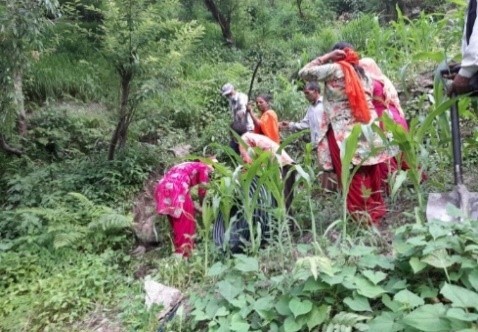 |
8 participatory micro irrigation projects were planned and implemented in 8 villages over the past two years. Approximately 100 families have benefited from these tanks and irrigation systems. Village folk provided hand-cut stone, cartage, and labor, while Arpana provided the construction materials.
Because of these irrigation tanks, farmers were able to grow profitable vegetable crops. In 2011 total income from the sale of vegetables was Rs. 15,32,412 and in 2021 was Rs. 78,41,190! Farmers income increased 500%!
Farmer Producer Organizations (FPOs)
These are collectives of small and marginal farmers being promoted by government agencies like the National Bank for Agriculture and Rural Development (NABARD). Arpana partnered with NABARD in 2016 to form 2 such farmer’s producer organizations and since then, has worked with the FPOs to strengthen them, widen the membership base and enable them to grow their business.
Now these two FPOs have a membership of 401 farmers who benefit from collective marketing of vegetables and milk – often getting twice the price they got on their own!
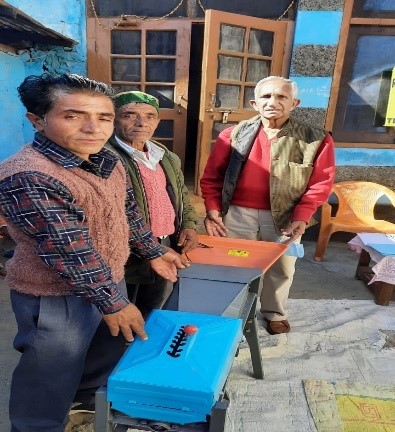 |
A Month’s Work in 2 Hours! Maize Sheller Machines were provided to 6 farmers groups from 10 villages. Farmers were taught about their functioning, maintenance and the safety measures they need to follow.
All the farmers then learned to operate these machines themselves. Earlier it took farmers a month to extract maize, and now the work of harvesting maize would be completed in 2 or 3 hours! Subsistence Farmers Receive Maize Sheller Machines |




